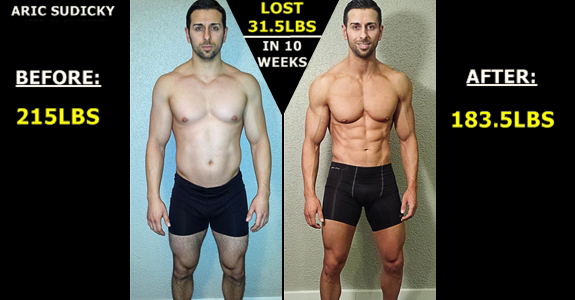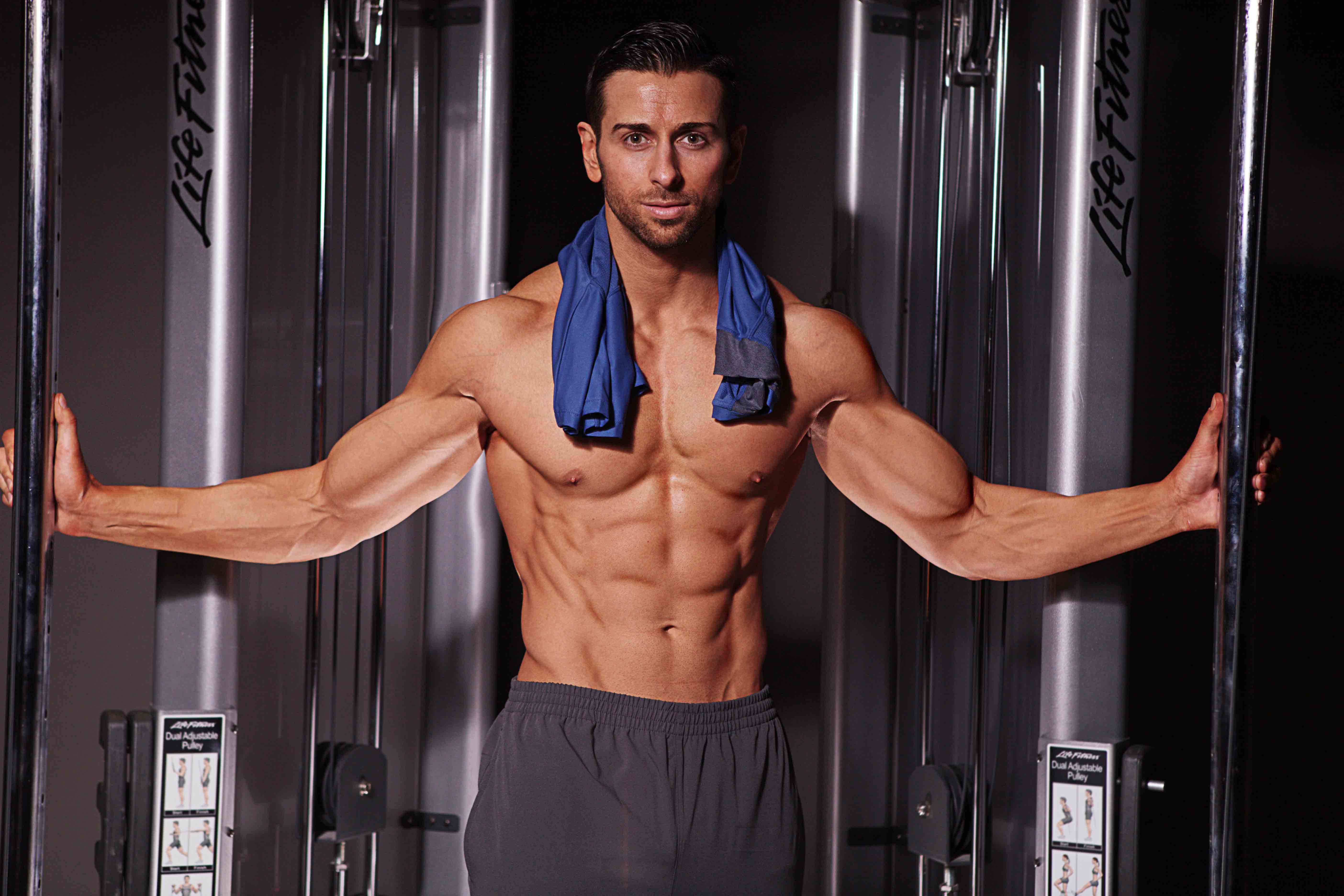This blog explains why I chose to get in elite condition in medical school… When attempts at weight loss fail (and most do) often the finger is pointed at the patient – “They weren’t motivated enough, they did not see the benefits…”, but I wonder if part of the blame should be shared by health care providers who do not “buy in” to prevention. Deep down, do you believe that exercise and nutrition are more powerful than any drug at reducing your risk of disease? If the answer is no, you have set your patients up for failure before even attempting to tackle the delicate conversation of weight loss.
Why did I lose 30lbs to get in ultra-lean condition in medical school? When patients sit in their doctor’s office for a yearly physical they think:
“What do YOU know about exercise or nutrition?”
“What would YOU know about fat loss?”
“Do YOU even exercise?”
My response, “I live it.” I want patients to know I have dedicated almost a decade to mastering the art of fat loss, including while in medical school. Every piece of advice I give has been applied to my own body. I will look my patients in the eye and tell them that I genuinely “buy in” to using preventative medicine to help them live longer. Fat loss can be a stressful, incredibly emotional experience, and I will tell patients “I understand” and have been in their shoes.
Upon starting medical school I purposely increased my CLEAN calories to help with growing lean mass. Being a busy fitness model prior to medicine made it difficult to pack on mass while staying ultra-lean 365 days/year. This was my chance to grow quality drug-free muscle.
By January I had reached a bulky 215lbs and I knew the real hard work was about to begin. A week into cardiology I was sitting in class 8:30am to 5:30pm before returning home to sit and study 8-10pm most evenings. This could easily have been my first excuse to give up on a return to an ultra-lean physique. Instead it meant a simple nutritional adjustment.
TIP #1: SEDENTARY DAYS = CARBOHYDRATE TAPERING
- On days when I was sitting for 9-12 hours the majority of carbohydrates were consumed before 10am
- Carbohydrates consumed were high in fiber and combined with lean protein.
I knew I was in for long nights studying. Failing out of med school is NOT an option! I was down over 10lbs but knew something had to give in order to provide more study time. Contrary to what many trainers prescribe, you DO NOT need to perform any cardio to shed body fat and preserve muscle. When prescribed properly, nutrition can provide enough of a caloric deficit to shed body fat, with the caveat that muscles are stimulated frequently enough through focused strength training. What was my solution? Compound heavy lifts targeting all major muscle groups 3x/week for 40 minutes (Often twice per week for my last month of dieting due to school demands).
TIP #2: COMPOUND MOVEMENTS SHORTEN GYM TIME
- Doctors (and any busy professional) have strict time demands and need not waste any with isolated movements. Squats, bent over rows, incline pressing, and walking lunges are staple time-efficient movements to preserve muscle and promote fat-burning.
- When carefully planned, 3-4 compound exercises can provide a full body workout.
After eight weeks the finish line was in sight. Without habits, this is when many hit “the wall”. Been here? You have lost 20lbs and the numbers begin to move more slowly and want nothing but to dig into a Big Mac. When talking to patients this is why it is important to avoid detailed medical jargon and focus on intrinsic motivators. Ultimately, most could not bother with the physiology of fat loss. What motivates many people, including myself, are: family, staying off medications, and living longer. Motivated doctors (and patients) do not except their first excuse.
TIP #3: FIND YOUR REASON
- To ensure you stay lean it is important to “FIND YOUR REASON.” Research has shown that maintaining weight-loss is arguably more difficult than weight-loss itself. Talk to close friends and family members and reflect on your passions in life. Ask yourself, “What will my last 10 years look like?” Will you be playing with grandchildren and travelling, or forced to remain indoors struggling to maintain daily necessities of living?
- Create a long-term health goal. For me it is aging with vitality. I have witnessed the havoc diabetes, sarcopenia (muscle loss with age), and heart disease can wreak on quality of life and am determined to feel younger than my numerical age.
Once I had lost 25lbs I was becoming increasingly at risk of losing precious muscle. It is no secret that ultra-lean bodies like to burn muscle when put on lower-carb diets. Unfortunately, at a time when dramatic weight-loss stories dominate media outlets, many “experts” forget the importance of helping patients preserve hard-earned muscle while shedding fat.
TIP #4: FOCUS ON FAT-LOSS, NOT WEIGHT-LOSS
- There is no sense in shedding significant weight if the majority is muscle.
- Aim to consume 30g of quality protein at each meal to maximize muscle protein synthesis (1). This is even more important in the elderly where research has shown that at least 30g protein is required with each feeding to maximize muscle protein synthesis (2).
- The greater your caloric deficit, the more critical it is to consume a high-protein diet.
The last 5lbs is the most difficult phase of fat-loss for anyone, especially when striving for elite results. A busy medical school schedule forced me to rely heavily on nutrition over training to peak for the magazine photoshoots booked after final exams. Calories were reduced one last time, which was achieved by reducing carbohydrates on non-training days when I was most sedentary. If you turn on your television you will in all likelihood see advice recommending cleanses, soup diets, pills, and powders to get over “the hump” when in reality it is consistency that yields a lean physique. Losing the last few pounds and most importantly, keeping them off, comes down to being a creature of habit. I did lose those pounds and have stayed lean ever since.
TIP #5: BE A CREATURE OF HABIT
- DO NOT EAT CLEAN FOR THE GOOD DAYS, CREATE HABITS TO GET THROUGH THE DIFFICULT ONES.
- It is important to realize that life and exercise are not always easy, we all have hard days. It is on these days when we rely on formed habits to eat clean and stay active.
Aric Sudicky is former director and co-founder of Medpoint Health Care’s medically integrated exercise and nutrition program. He is a former Canadian Fitness Professional of the Year, medical student, and advisory board member for STRONG Fitness Magazine. You can follow Aric via his Facebook or twitter pages.
Sources:
1) Morley JE, Argiles JM, Evans WJ, et al. Society for Sarcopenia, Cachexia, and Wasting Disease. Nutritional recommendations for the management of sarcopenia. J Am Med Dir Assoc 2010;11:391–6.
2) Tieland M, van de Rest O, Dirks ML, et al. Protein supplementation improves physical performance in frail elderly people: a randomized, double-blind, placebo-controlled trial. J Am Med Dir Assoc 2012;13:720–6.
3) Morley JE. Do frail older persons need more protein? J Am Med Dir Assoc 2012; 13:667–8.



Recent Comments